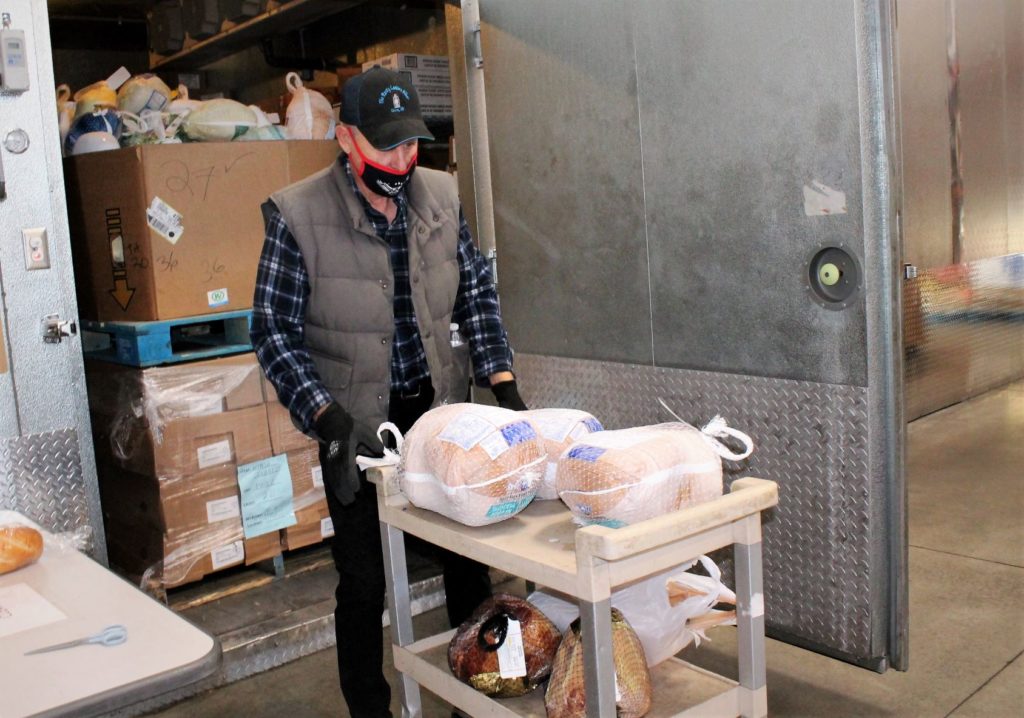A file photo of Farrell Layne from Hyde Park pulls a cart with turkeys and hams to the freezer.
TALORSVILLE – Avian Influenza has hit the Sanpete County turkey industry hard with 400,000 turkeys either were euthanized or died from the Highly Pathogenic Avian Influenza (HPAI). Utah’s turkey industry produces upwards of 3.6 million birds annually according to a federal agriculture statistician based in Utah.

The Utah Department of Agriculture and Food (UDAF) has confirmed three more cases of HPAI on turkey farms in Sanpete County this week, making a total of 11 farms impacted by the disease. All turkeys on these premises have been depopulated to prevent further spread of the disease.
While the loss is significant for these farms, currently, food shortages are not expected with current numbers. The situation is fluid and is being closely monitored by UDAF and USDA officials in efforts to contain the disease and prevent further impact. The state agency is working to contain the disease and is asking the public to stay away from the infected locations with known cases and locations.
UDAF is asking all domestic bird owners, including backyard chicken flocks, ducks, geese, turkeys, gamebirds, etc., to strengthen their biosecurity practices.
“If possible, birds should be kept locked inside enclosures to avoid contact with migratory birds,” said Bailee Woolstenhulme public information officer for UDAF. “Flocks should not have shared water, feed, or grazing sources with wild bird habitats.”
Poultry producers from the small backyard to the large commercial producer should review the biosecurity materials about biosecurity, including videos, checklists, and a toolkit available at: https://www.aphis.usda.gov/aphis/ourfocus/animalhealth/animal-disease-information/avian/defend-the-flock-program/dtf-resources/dtf-resources.

Bird owners should know Avian flu indicators in their birds such as nasal discharge, decreased appetite or water consumption, and lack of coordination in birds. If any domesticated birds are experiencing any of these symptoms, it should be reported to the state veterinarian immediately at statevet@utah.gov.
According to the U.S. Centers for Disease Control and Prevention, the recent HPAI detections do not present an immediate public health concerns. One case of this strain of HPAI has been detected in the United States.
For more information and guidance on how to protect animal and human health in Utah, visit https://ag.utah.gov/hpai/.

